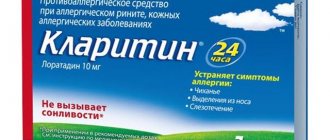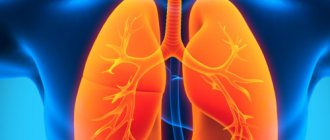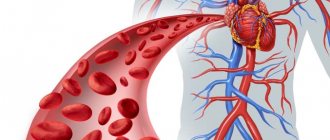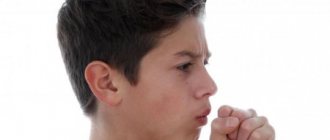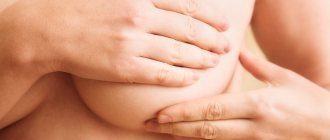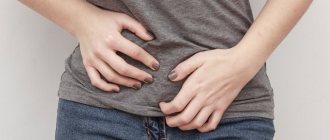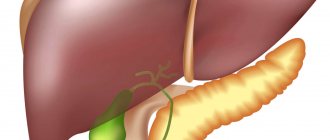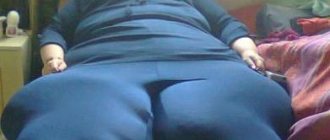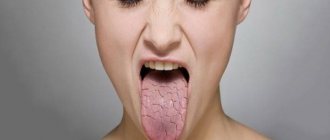Do you consider yourself a completely healthy person, but sometimes you feel cold? This situation needs to be sorted out. This reaction of the body appears for a reason. It gives a signal that something is wrong.
You must understand that chills without fever are not normal. Along with chills, there appears a feeling of malaise, weakness, and a desire to go to bed. The appearance of chills without the presence of fever can be caused by the following factors:
- prolonged hypothermia of the body;
- ARVI;
- infectious diseases;
- severe fatigue;
- stress;
- changes in blood pressure;
- endocrine disorders
Chills due to prolonged tension and stress
In this case, chills without fever very often appear, the reason is that the body develops a protective reaction to a stressful situation in the form of chills. After suffering from stress, you need to try to ensure peace, drink mild soothing herbal infusions and drink plenty of fluids in the form of sour berry infusions, tea with lemon, berry infusions and mousses.
It often freezes people who have been diagnosed with vegetative-vascular dystonia. They almost always have cold extremities and find it difficult to warm up. This is due to the fact that during the disease the vessels have very poor tone. To normalize the functioning of blood vessels, it is recommended to use hardening techniques, baths, and showers. All water procedures should alternate between hot and cool water. After the steam room, it is very useful for such people to follow the old Russian custom of “diving into a snowdrift.”
To quickly remove all unwanted substances from the body that are formed during stressful processes, it is good to establish rapid and abundant urine excretion from the body using a decoction of lingonberry leaves.
And be sure to take care of yourself, do not overexert yourself, and do not bring your body to nervous exhaustion.
Chills causes, methods of diagnosis and treatment
Chills are a painful sensation of cold caused by spasm of the superficial blood vessels, manifested by muscle weakness combined with a feeling of chilliness. During chills, due to frequent and rapid muscle contractions, heat production increases, resulting in trembling in the muscles.
At the same time, vasoconstriction occurs, blood flow in the skin decreases, sweating stops, which reduces the body’s heat transfer to the external environment and causes a feeling of chilliness. Occurs when the body is hypothermic, also at the onset of fever due to infections, injuries, inflammation, allergies.
Causes of chills
Chills with fever are an early sign of acute infectious diseases resulting from respiratory tract infection.
Viruses and bacteria, penetrating inside, poison the body's cells with the products of their vital activity, causing signs of intoxication: chills, fever, headaches, weakness, malaise.
Similar symptoms, cough, and shortness of breath manifest themselves in vascular and heart diseases, such as infective endocarditis, tonsillogenic myocardial dystrophy, and acute rheumatic fever.
Symptoms of chills are characteristic of a wide range of pathologies. These include:
- diabetes;
- blood diseases;
- pyelonephritis;
- pneumonia;
- salmonellosis;
- thyroid diseases.
In a healthy person, chills appear as a protective reaction to the effects of cold, emotional, physical and mental fatigue, and can occur due to anxiety, stress, high blood pressure, and allergies. In women, the sensation of shivering coincides with the onset of menopause due to hormonal changes and the menstrual cycle, which is associated with blood loss.
Symptoms of chills
Chills rarely start suddenly. More often than not, its appearance is preceded by a feeling of chilliness, muscle aches, weakness, malaise, headaches, and the illusion of goosebumps.
Next, muscle tremors occur, “teeth chatter,” the skin turns pale, the nasolabial triangle appears blue, and less often the hands, feet, and ears.
At the same time, the pulse quickens, blood pressure rises, a slight increase in body temperature occurs, and the person tries to warm up under the blanket.
Severe chills in the elderly and children can occur with loss of consciousness, involuntary urination, and convulsions. This state lasts from several minutes to an hour. As the temperature rises, muscle trembling stops, the feeling of chilliness disappears, sweating increases, the skin becomes hot, it throws you into a fever.
When the first signs of cardiovascular disease appear, a consultation with a cardiologist is necessary. The diagnosis of acute respiratory viral infections and influenza is carried out by a therapist; if complications arise, an examination is carried out by a pulmonologist or otolaryngologist. Regardless of the causes of chills, diagnosis begins with an external examination, questioning, and identification of characteristic signs of the disease.
The diagnosis is confirmed by laboratory tests of blood and urine. In order to detect infection and further select a specific course of treatment, bacteriological culture is performed.
In cardiology, the main methods will be hardware diagnostics - electrocardiography, phonocardiography, ultrasound scanning of the heart, angiocardiography, probing of the cavities of the heart.
In the network of CMRT clinics, the diagnostic plan for the causes of chills includes the following methods:
If you have chills with symptoms of ARVI, flu, or without additional manifestations, consult a physician. If the problem is accompanied by abdominal pain and nausea, make an appointment with a gastroenterologist, and if there are signs of disruption in the endocrine system and hormonal imbalance, see an endocrinologist.
Treatment tactics are built taking into account the causes and severity of symptoms of chills, the nature and frequency of occurrence, and the general condition of the patient. Patients with fever are advised to remain in bed or semi-bed rest until their body temperature returns to normal. It is necessary to drink more fluids and follow a diet rich in protein and vitamins.
Among the medications, antipyretic, antiallergic, expectorant drugs are mainly prescribed; for nasal congestion - vasoconstrictor drops, analgesics to get rid of headaches. If a bacterial infection is detected, antibiotics are selected taking into account the sensitivity of pathogens to it, viruses - antiviral drugs.
Massage and inhalations are widely used among physiotherapeutic procedures.
Treatment of diseases of the cardiovascular system begins with conservative therapy. The doctor prescribes tranquilizers, antidepressants, nootropics, antipsychotics, beta-blockers.
A positive result is observed from hydrotherapy, therapeutic massage, exposure to reflexogenic points with a laser, needle, and dry cold.
For infective endocarditis, antibiotics are mandatory; if there is no effect, surgery is necessary.
To treat the causes of chills, the network of CMRT clinics uses different methods:
Consequences
Chills are a symptom that reduces the quality of life, but does not threaten the patient’s health. The risk of complications is associated with the pathologies that provoke it. Advanced vascular and cardiac diseases are the most common cause of disability and early mortality.
The mortality rate for cardiac pathologies is 40-50% of the total number of deaths. ARVI can cause complications in the ears, bronchi, lungs, and heart. The deadly consequences of influenza include pulmonary edema, false croup, and impaired brain function.
Diabetes mellitus causes life-threatening conditions: myocardial infarction, gangrene, kidney failure, blindness.
Preventing chills
Measures to prevent heart and vascular diseases include a healthy diet, moderate physical activity, avoidance of alcohol and cigarettes, proper rest, avoidance of stress and anxiety, and timely treatment of concomitant diseases. The main focus of the complex of measures to prevent influenza and ARVI will be vaccination, hardening, vitamin therapy, and compliance with sanitary and hygienic standards.
Diagnostic accuracy and quality service are the main priorities of our work. We value every review our patients leave us.
Panina Valentina Viktorovna
Actress, Honored Artist of the RSFSR
I found out about you on the Internet - I urgently need an MRI.
And after the performance I’m with you. I really liked your staff. Thank you for your attention, kindness and accuracy.
May everything be as good in your soul as I am now, despite all the problems...
Be!!! We're happy! Your Panina V.V.
Open review scan
Array( [ID] => 107 [~ID] => 107 [CODE] => [~CODE] => [XML_ID] => 107 [~XML_ID] => 107 [NAME] => Panina Valentina Viktorovna [~NAME ] => Panina Valentina Viktorovna [TAGS] => [~TAGS] => [SORT] => 100 [~SORT] => 100 [PREVIEW_TEXT] =>
I found out about you on the Internet - I urgently need an MRI.
And after the performance I’m with you. I really liked your staff. Thank you for your attention, kindness and accuracy.
May everything be as good in your soul as I am now, despite all the problems...
Be!!! We're happy! Your Panina V.V.
[~PREVIEW_TEXT] =>
I found out about you on the Internet - I urgently need an MRI.
And after the performance I’m with you. I really liked your staff. Thank you for your attention, kindness and accuracy.
May everything be as good in your soul as I am now, despite all the problems...
Be!!! We're happy! Your Panina V.V.
Source: https://cmrt.ru/simptomy/oznob/
Chills due to endocrine disorders
If a person has a thyroid disease, then he very often has chills without fever. This happens because the thyroid gland is responsible for thermoregulatory processes in the body. The gland produces a special hormone that is directly involved in this work.
Very often a person gets cold if he has diabetes. In this case, this occurs due to poor circulation. Due to the disease, blood vessels are often affected, they contain cholesterol plaques, the vessels of the extremities (especially the lower ones) become thinner very quickly and in the early stages, blood flow is disrupted, and accordingly, temperature processes in the body are disrupted. Here the recommendations are aimed at treating the underlying disease.
During menopause, women may also experience chills. This is a fairly common phenomenon when, with age, the body experiences a lack of hormones. To improve the condition, hormone replacement therapy is prescribed.
We have examined the most common causes of chills without fever, but we draw the reader's attention to the fact that such chills can be caused by various diseases that can be very dangerous.
Therefore, you should not self-medicate; if you experience frequent chills, you should definitely consult a doctor. And only after the examination it will become clear how serious these manifestations are.
Causes of chills
It is necessary first of all to understand that chills in women without an increase in body temperature are an abnormal symptom. Along with chills, symptoms arise: headache, aches, weakness, and this often happens during pregnancy, which is especially dangerous.
The causes of chills without an increase in body temperature in a woman during pregnancy and not only can arise as a result of the following factors:
- ARVI;
- prolonged hypothermia of the body;
- severe fatigue;
- infection;
- disturbances in the functioning of the endocrine system;
- changes in blood pressure;
- stress.
Treatment of chills
If the cause of chills without fever lies in hypothermia, the patient will be helped by:
- breathing exercises;
- warm bath;
- taking a sedative;
- hot drink.
When the causes of chills are infections or colds, foot steaming and hot baths can be used as therapeutic measures. After such activities, the patient’s body must be rubbed with a terry towel and the person put to bed.
If the patient has symptoms such as headache, nausea and vomiting, he loses his appetite. In this case, the person should be given as much drink as possible, to which lemon, raspberry jam and honey should be added. In this way, you can get rid of intoxication from the body.
In addition, the patient is prescribed diuretics. With the help of diuretics, toxins are removed from the body faster, which means that the symptoms of intoxication (headache, nausea and vomiting) also disappear faster.
To treat chills without fever, you should not resort to drinking alcohol. Such actions will only lead to a worsening of the condition.
Chills can be caused by endocrine diseases, so the patient needs to undergo appropriate hormone tests. If there is a deficiency of thyroid hormones, the doctor will prescribe replacement therapy.
Drugs containing hormones are often prescribed to women during menopause, and these drugs are intended specifically to eliminate the symptoms of menopause, which include chills without fever.
Periodic vascular spasms are typical of Rhine disease. In such a situation, Botox injections will help get rid of the unpleasant symptom. Patients who are familiar with chills should avoid hypothermia.
If the condition is provoked by vegetative-vascular dystonia, treatment should be comprehensive, it will help strengthen the body from the inside. The patient must give up bad habits, since smoking and alcohol impair blood circulation. Adequate sleep is the key to good blood circulation.
A condition where there are chills but no temperature may indicate the presence of various diseases in the body, most of which are very serious. Therefore, the cause of the pathology needs to be found out as quickly as possible.
And in the video in this article you can learn how to correctly diagnose the flu and not miss the onset of the disease.
If chills without fever appear, what could be the reason? This question worries many people who have encountered this problem at least once. What is this phenomenon, what are its symptoms? How to treat chills? It is necessary to consider in more detail.
First of all, it should be said that chills are not the disease itself, but its symptom, therefore, before starting treatment, it is necessary to identify the root of the problem.
This term refers to a spasm of blood vessels. Chills and the symptoms of the condition that causes them are similar in almost all cases. First, the patient suddenly becomes cold and begins to tremble violently. Then problems arise with the muscles of the face, and then the whole body. Fever and aching bones appear. A person begins to feel weakness and is overtaken by a fever. In this case, the disease can manifest itself both in the morning and at night. Depending on the factor that causes chills, the highest peak of manifestation of the disease can be identified.
Chills are usually accompanied by a rise in temperature due to muscle spasms, which increases the amount of heat in the body. Therefore, if chills appear without an increase in body temperature, then this is an abnormal situation that requires the intervention of a specialist.
As you know, male and female organisms differ from each other in their structure and functioning. Therefore, speaking about the sources of the disease, we can distinguish general causes and special ones, characteristic only for women.
Severe chills without fever may result from hypothermia. Under the influence of cold, blood vessels sharply narrow, blood flow slows down, and a person begins to experience a feeling of chilliness. If you have a chill, what should you do? You should drink hot tea, take a warm bath and wrap yourself in a woolen blanket. If such treatment is suitable and the signs of the disease disappear, then there is no need to worry.
If a cold infection enters the body, chills and weakness without fever occur, and the whole body begins to ache. They appear because the body begins to fight the virus that has entered the blood, but the body temperature may not rise. The best way to get rid of chills is to soak your feet in hot water, drink tea with raspberries or honey, and then go to bed and sleep for a few hours.
If the appearance of chills without fever is caused by the presence of an infection in the body, then the disease will be accompanied by the following symptoms - vomiting, nausea, headaches and weakness of the body. This is due to the fact that microorganisms, once inside a person, begin to release harmful toxins and poisons. In this case, home treatment is not suitable, so you should consult a doctor immediately.
You should always remember that chills do not happen without a reason. Therefore, if there was no hypothermia and there are no infections in the body, perhaps the cause of the phenomenon was prolonged tension and stress. In such situations, the body begins to use certain protective mechanisms, including chills without fever. In this case, the treatment will be as follows. You need to isolate yourself from factors that cause stress, make an infusion of soothing herbal infusions or tea with lemon and berries. You need to take a well-deserved rest and try to relax.
The body's reaction in the form of this disease often occurs with high blood pressure. If a person suffers from hypertension, the blood vessels constantly change, which impairs blood circulation in the body. You can get rid of chills with high blood pressure in several ways. One of them is to take Corvalol, which helps lower blood pressure. Be sure to relax and wash your face with cold water. If attempts are unsuccessful, it is better to go to the hospital, where the attending physician will advise and prescribe the necessary therapy.
Night chills most often accompany patients with disorders of the vegetative-vascular system. Such people always have cold hands and feet, and it is often difficult for them to warm up. To prevent chills at night from interfering with sleep, constant hardening should be carried out. You need to go to the bathhouse more often, and then “dive” into a snowdrift, or contrast cold water with hot water during bathing procedures.
The causes of chills without fever are quite diverse. In particular, the source of chills includes a thyroid disorder or diabetes mellitus. In the first case, the organ begins to secrete a special hormone that regulates temperature processes in the body. If a person has diabetes, the pathology often causes circulatory problems. Due to the disease, the blood vessels are affected and thinned, causing blood flow to be impaired.
The development of the disease in older people is associated with irreversible aging of the body. Many people experience worsening heart failure and arterial hypertension. A combination of diseases leads to disruption of metabolic processes that are responsible for the production of heat in the body. Because of this, older people may experience constant chills without fever, which only a specialist can help get rid of. Also, this group of people often experience chills after taking a large number of medications, which is a side effect of the drugs used.
It should be noted that chills at night are most often felt with nervous tension, diabetes mellitus or ARVI.
Chills without fever
St. Tverskaya 22 125009 Moscow JSC Sanofi-Aventis Group Chills are a condition caused by rapid alternation of muscle contractions and relaxations. It can often be associated with fever, but can sometimes occur at normal temperatures.
Chills may be a physiological reaction of the body to changing environmental conditions or indicate the development of an acute or exacerbation of a chronic disease, for example, arterial hypertension1.
Why do chills appear without fever and when should you see a doctor?
Trembling in the body, which is not accompanied by fever, can be caused by various reasons, let's look at the most common ones.
- 1 Hypothermia, exposure to cold
, for example, outside on a cold day, in a swimming pool, in an air-conditioned room. Hypothermia may also cause numbness in areas of the body exposed to low temperatures, pale skin, drowsiness, and apathy2. - 2 Excessive exercise
, for example, extreme sports. Chills can occur regardless of the ambient temperature, but they are more likely to occur when the gym is too hot. If the air temperature is above 26.7°C, stress heat injury may develop3.More often, heat injury can occur during competition in runners who have not acclimated or hydrated. The condition is manifested by chills, headache, goose bumps, nausea, vomiting, increased breathing and can occur in both women and men3.
- 3 Side effect of some medications.
For example, chills, according to a study, appear in 5% of cases during epidural anesthesia4. - 4 Reaction to a stressful situation
“hit and run” type, when the body mobilizes to eliminate the threat. The condition is caused by the release of the hormones adrenaline and norepinephrine into the blood, which help increase reaction speed, muscle strength, increase the pain threshold, heart rate, and blood pressure5.These changes may be accompanied by increased blood sugar, slowed digestion, dilated pupils, tremors and chills5.
- 5 Menopause
is a common cause of chills without fever in women. Hormonal imbalance that occurs in the body can be accompanied by hot flashes, increased sweating, headaches, chills, including at night, palpitations, irritability, decreased libido and a number of other symptoms6.
Trembling without an increase in body temperature can be a manifestation of a number of pathologies, including chronic ones.
- Hypothyroidism
is a decrease in thyroid function, in which the thyroid gland does not produce enough hormones necessary to regulate metabolism. Hypothyroidism may increase the body's sensitivity to cold, leading to chills. The disease is accompanied by a number of other symptoms, such as unexplained weight gain, memory impairment, and others7. - Hypoglycemia
is a decrease in blood sugar levels below 3.3 mmol/l. This condition can develop in patients with diabetes mellitus receiving insulin or hypoglycemic drugs due to an overdose of drugs, a sudden increase in physical activity, or drinking alcohol. Glucose levels often decrease quickly, accompanied by severe weakness, sweating, trembling in the hands, a feeling of internal chills, and pallor8. - Anxiety disorders
are a group of diseases in which pathological anxiety appears when fear is disproportionate to the impending threat. These pathologies include phobic disorders (fear of cancer, fear of confined spaces, fear of insects), panic disorders (for example, panic attacks), generalized anxiety disorder9. - Colds, or ARVI.
Usually, catarrhal symptoms - runny nose, cough, sore throat - prevail over the manifestations of intoxication, so the body temperature may not rise, and sometimes remains normal. A cold sometimes causes chills at night, but shivering can also occur during the day10.
The most common chronic cardiovascular disease in adults, which develops in approximately 40% of the population, is often asymptomatic. The body gradually adapts to high blood pressure, so the state of health after many years of pathology often remains quite good11.
However, a sharp increase in pressure, for example, due to physical or emotional overload, weather change, sudden withdrawal of antihypertensive medications, alcohol consumption, can be accompanied by a vivid clinical picture. A hypertensive crisis is manifested by headache, redness of the skin, trembling and chills, palpitations, excessive urination, visual disturbances and other symptoms12.
A doctor's help is necessary when chills are caused by serious, chronic diseases or dangerous conditions. If chills are associated with a hypertensive crisis, it is necessary to call an ambulance. The doctor will help you gently lower your blood pressure and, if necessary, suggest hospitalization11. If chills are a constant concern, a routine consultation with a doctor is necessary. The specialist will find out the cause of the symptom, conduct a diagnosis and prescribe the correct treatment, which will help normalize the condition and improve the quality of life.
- What you need to know about arterial hypertension: textbook /comp.: A.A. Cherepok, N.G. Volokh, N.V. Baranova. –Zaporozhye: ZSMU, 2017. –37 p. –(School of Public Health)
- Prevention of hypothermia. FBUZ "Center for Hygiene and Epidemiology in the Kursk Region" - [Electronic resource] - URL: https://46cge.rospotrebnadzor.ru/info/145928/ (Access date 11/19/2019).
- Internal illnesses. In 10 books. Book 1. Trans. from English / Ed. E. Braunwald, K. J. Isselbacher, R. G. Petersdorf and others - M.: Medicine. — 1993. —- 560 p.: ill.
- Kochetkov A.I. et al. Evaluation of some side clinical effects during labor anesthesia using the PEDA method. Mother and child in Kuzbass, 2001; No. 7 (8).
- Styushina A. A. et al. Stressful state of a person and the brain’s reaction to stress // Development of professionalism, 2016; No. 2: 122-123.
- Dobrokhotova Yu. E. Menopausal syndrome. General Medicine, 2004; No. 1: 3-8.
- Internal illnesses. In 10 books. Book 9: Trans. from English/Ed. E. Braunwald, K. J. Isselbacher, R. G. Petersdorf and others - M.: Medicine. - 1997. - 464 p., ill.
- Dedov I. I., Mayorov A. Yu., Surkova E. V. Type 1 diabetes mellitus. Book for patients. – M. – 2005. – 119 p.
- Gurov V. A. et al. Anxiety disorders in general medical practice: clinical and therapeutic aspects. Archives of Internal Medicine, 2011; No. 2: 15-19
- Knyazheskaya N.P. Diagnosis and treatment of ARVI: features of the drug Amizon. RMJ, 2015; T. 23. No. 18: 1116-1120.
Participants of the “Pulse of Health” program
Source: https://helpheart.ru/arterialnoe-davlenie/ob-arterialnom-davlenii/oznob-bez-temperatury/
Treatment of chills
What to do if you have chills, if you feel cold? As noted above, treatment of chills is aimed at eliminating its root cause. Thus, the following methods of treating chills can be noted:
- Warm the body - dress well in warm clothes, wrap yourself in a blanket, drink hot tea, raspberries or milk with, if there is no elevated temperature, take a warm bath or steam your feet in a basin.
— If you are emotionally unbalanced, you need to take deep breaths, drink a glass of water, a sedative, such as tea with mint or sage;
- If, it is necessary to take a remedy for increased fever, when it normalizes, the chills will go away on their own;
- If chills are caused by poor condition of the blood vessels, as for example with, then hardening procedures have proven themselves to normalize their work;
— For various infectious diseases (flu, etc.), it is recommended to drink plenty of fluids, which will help quickly remove infections from the body and, accordingly, normalize its condition.
Important!
If you have chills, do not drink alcoholic beverages! The use of medications is possible, but only after consultation with a doctor.


